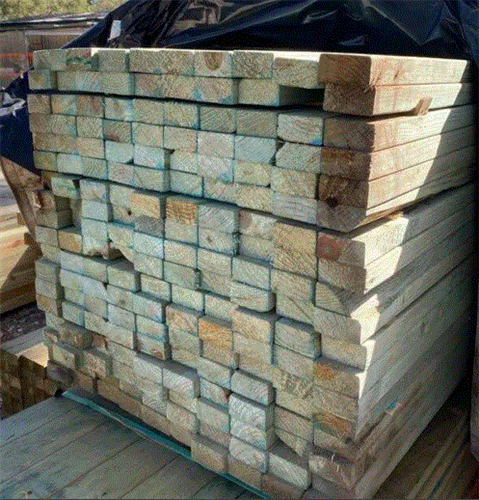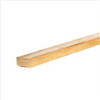RADIATA F5 (BASE GRADE) UNTREATED 90 x 35mm

RADIATA F5 (STRESS GRADE) TREATED T2 90 x 35mm.
F5 won't warp or twist any more or less than MGP10.
The F grade system has been used to grade structural timber for many years. In general, all timbers other than certain plantation pines are still F graded. The grading process can be done either visually (that is, by eye), or mechanically, using a machine stress grader. The alternative grading system used for specific plantation pines is MGP grading. This is always done with a machine.
F grading
An F grade is a measure of the bending strength of a piece of timber. 'F' stands for force in megapascals (MPa), and is the amount of force a piece of timber can withstand without bending beyond an acceptable limit. A piece graded to F11, for example, will have a safe working stress in bending of 11 MPa.
The colour codes used for the most common softwood F grades are:

The classification of a piece of timber (for structural purposes) to the relevant Australian Standard, to indicate its characteristic structural properties and stiffness. It is related to timber strength groups. Structural timber is generally sold as a (stress) graded product. A stress grade is the classification of a timber for structural used in structural applications and described in AS1720 SAA-Timber Structures Code.
Stress grades are derived from either visual- or machine-grading, which specify the stress limits that apply to timbers used for structural applications. Stress grades are known by ‘F’ grades (F4 to F34); F14 indicates that the basic working stress for that timber is around 14 MPa. Timber to be used in a specific structural application must meet the required stress grade specified by the architect or designer.
F5
Click here to view the full Shipping Details and Returns Policy.





